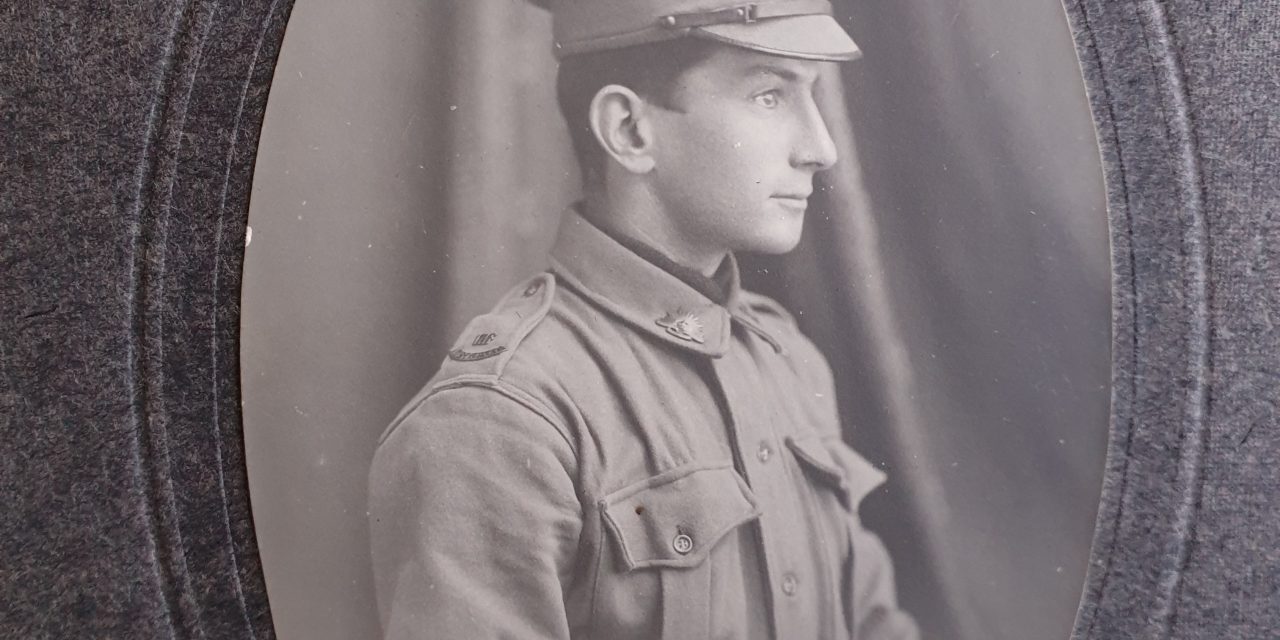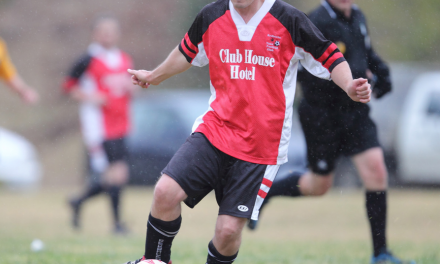In November 1935 the Yass Soldiers Club decided to sell locally-sourced rosemary sprigs instead of the traditional red poppies associated with Armistice Day – Remembrance Day as we know it. The rosemary was donated and cut by Mrs Will Thomson, of “Aberlour,” O’Connelltown (Yass). Mary Ellen Thomson’s support for servicemen was first recognised in March 1916 when she was crowned “Queen of the Allies” at Yass Showground after successfully raising the most money in support of the war effort. At the time she had one son at the front, Jack, and another, Will, in camp. The Yass Courier reported there was not one in the crowd “who did not deem the honour well bestowed. The mother of soldiers; a worker for their welfare, foremost in all that makes for the alleviation of the sorrow-stricken or distressed, a Queen in the hearts of many”.

Mrs Will Thomson in Queen of the Allies regalia 1916 – Image courtesy of a private collection
Yass and district lost around 278 men by the time the Armistice was declared at 11.00 am on November 11th, 1918 not counting the many, like Jack Thomson, who struggled with shocking injuries both physical and mental for the rest of their lives. As well as her fund-raising efforts Mrs Thomson had written more than 100 letters to cheer servicemen at the front.
Her support of fundraising for returned servicemen continued up until her death in 1945. Whilst she well understood the joy and relief of the first Armistice Day after terrible years of anxiety and suffering, in 1935 she also understood “there must come remembrance of the men who are suffering today the injuries endured in the Great War, and that they require help.”
It is hard to imagine her dismay to know, as the Yass Courier reports in that same year, “the world is faced with grim fear of another war.”
When war broke out yet again in 1939, Ellen Thomson, now in her late seventies did what she could. She turned 1550 skeins of wool into “24 pairs of socks, 67 skull caps, 42 long scarves, 3 helmet scarves and 93 balaclavas, in all, over a hundredweight of wool.” When she died in 1945 her obituary confirmed “she was mourned and long remembered, particularly by the local returned soldiers of World War One.”
In 1935 there was another courageous and determined supporter of his people, William Cooper, who understood what it meant to lose family in a long and destructive struggle to preserve what he held dear and sacred.

William Cooper, Aboriginal activist
Mr William Cooper, a proud Yorta Yorta man, was an articulate advocate for Aboriginal rights and recognition. In 1935 he organised a petition to King George V:
Despite the 1814 signatures, the petition was not sent. Again, presented by William Cooper in 1937 the then Prime minister Joseph Lyons failed to pass it on. Recent research indicates that about 2,213 Indigenous Australians enlisted during World War One. Generally, they served under the same conditions as other members of the Australian Imperial Force, and for most, it was the first time, they received equal pay and conditions. However, after the war, they received little private or public support, still denied citizenship with their wages and movement controlled by Protection Boards.
On November 11th, Remembrance Day 2020, we honour all who served in the name of Freedom and Peace for Australia, “Lest We Forget”. We can also remember and support Australia’s First Nation people. The theme this year for NAIDOC Week beginning November 8th recognises the ancient roots of Aboriginal culture and history as something else we shouldn’t forget- “Always was, always will be.”
Judith Davidson for Yass and District Historical Society






